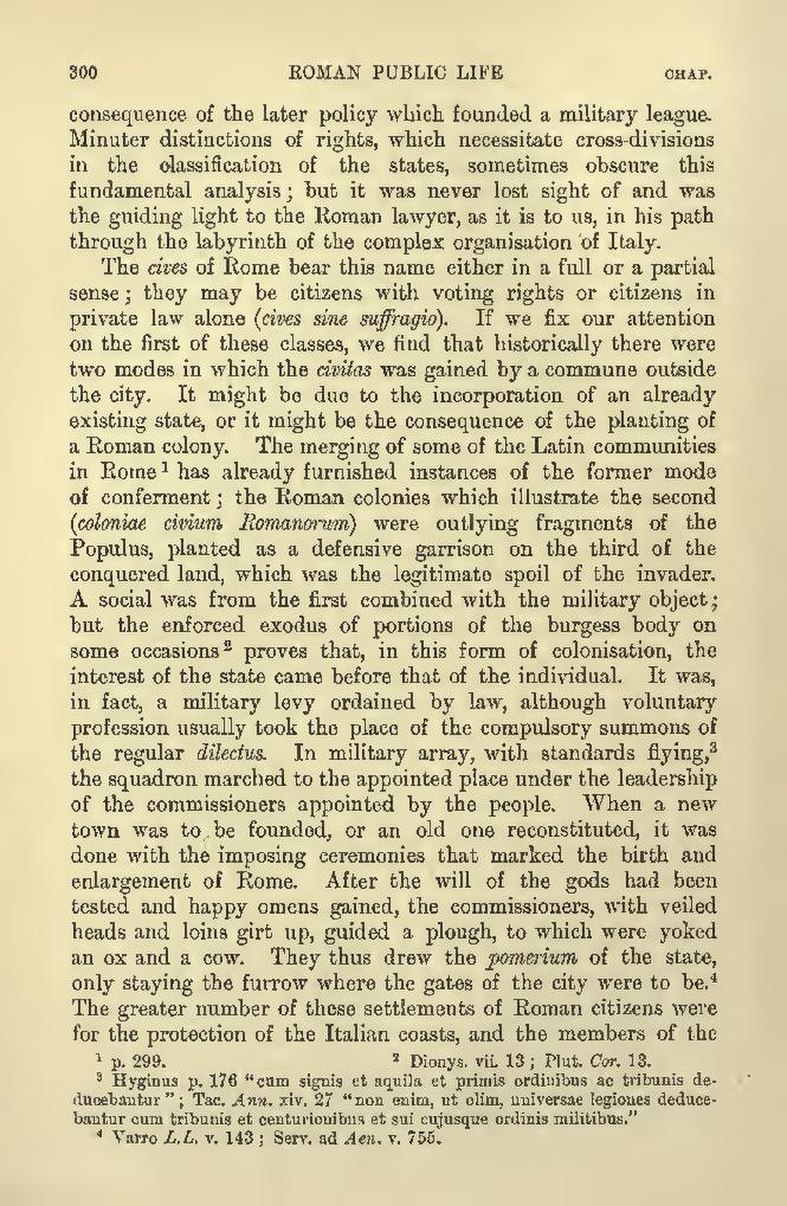consequence of the later policy which founded a military league. Minuter distinctions of rights, which necessitate cross-divisions in the classification of the states, sometimes obscure this fundamental analysis; but it was never lost sight of and was the guiding light to the Roman lawyer, as it is to us, in his path through the labyrinth of the complex organisation of Italy.
The cives of Rome bear this name either in a full or a partial sense; they may be citizens with voting rights or citizens in private law alone (cives sine suffragio). If we fix our attention on the first of these classes, we find that historically there were two modes in which the civitas was gained by a commune outside the city. It might be due to the incorporation of an already existing state, or it might be the consequence of the planting of a Roman colony. The merging of some of the Latin communities in Rome[1] has already furnished instances of the former mode of conferment; the Roman colonies which illustrate the second (coloniae civium Romanorum) were outlying fragments of the Populus, planted as a defensive garrison on the third of the conquered land, which was the legitimate spoil of the invader. A social was from the first combined with the military object; but the enforced exodus of portions of the burgess body on some occasions[2] proves that, in this form of colonisation, the interest of the state came before that of the individual. It was, in fact, a military levy ordained by law, although voluntary profession usually took the place of the compulsory summons of the regular dilectus. In military array, with standards flying,[3] the squadron marched to the appointed place under the leadership of the commissioners appointed by the people. When a new town was to be founded, or an old one reconstituted, it was done with the imposing ceremonies that marked the birth and enlargement of Rome. After the will of the gods had been tested and happy omens gained, the commissioners, with veiled heads and loins girt up, guided a plough, to which were yoked an ox and a cow. They thus drew the pomerium of the state, only staying the furrow where the gates of the city were to be.[4] The greater number of these settlements of Roman citizens were for the protection of the Italian coasts, and the members of the
- ↑ p. 299.
- ↑ Dionys. vii. 13; Plut. Cor. 13.
- ↑ Hyginus p. 176 "cum signis et aquila et primis ordinibus ac tribunis deducebantur"; Tac. Ann. xiv. 27 "non enim, ut olim, universae legiones deducebantur cum tribunis et centurionibus et sui cujusque ordinis militibus."
- ↑ Varro L.L. v. 143; Serv. ad Aen. v. 755.
